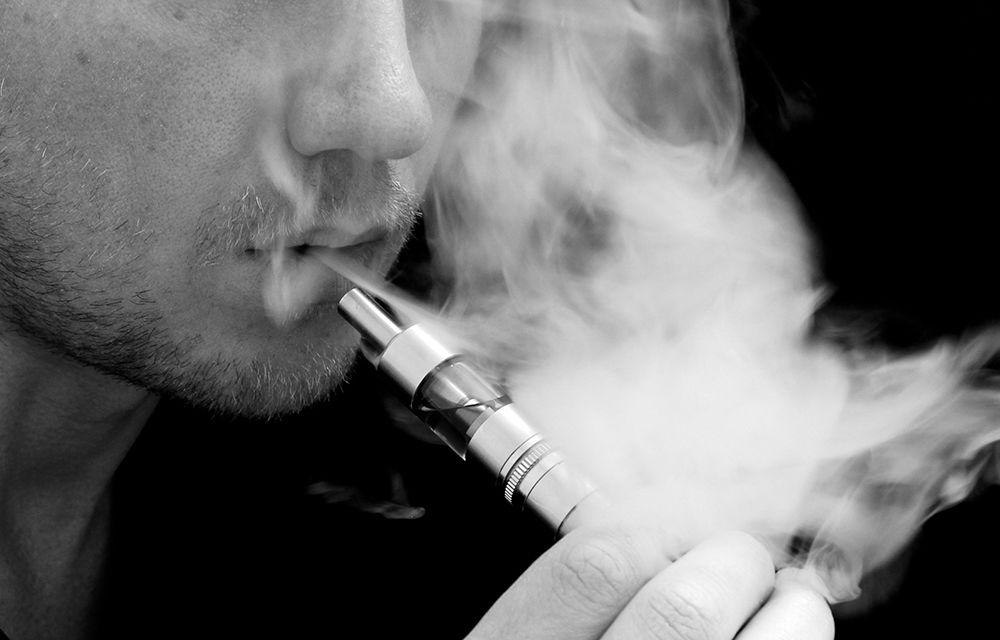Since their invention in 2003, the stance on e-cigarettes and their safety has been wavering, all the while growing in popularity among the younger audience, including on NC State’s campus.
In September, the U.S. Food and Drug Administration announced their efforts to stop companies from illegally selling e-cigarettes to minors as well as to encourage young people to stop using the devices.
Dr. Julie Casani, director and medical director for Student Health Services, and Chris Austin, alcohol and other drug prevention coordinator, gave insight into the misconceptions and health risks surrounding e-cigarettes.
Austin said that while no recent surveys have been conducted on e-cigarette usage at NC State, the popularity of e-cigarette usage is apparent just from walking around campus. Casani is working on a student health survey for fall of 2019, which will include e-cigarette usage.
“It is visible, but we have not done any statistical research on the [NC State] population [currently using e-cigarettes] since 2015,” Austin said. “It does seem to be in epidemic proportions among adolescents and a lot of that is due to marketing and the flavored product.”
Leighton Shirley, a second-year studying sustainable materials and technology, was an e-cigarette user for about a year and quit within the last two months.
“It was something that was convenient,” Shirley said. “I felt like it helped me alleviate some of my stress… It didn’t do that, really.”
Similar to Shirley, Trevor Dill, a second-year in exploratory studies, uses e-cigarettes to relieve stress. Dill, who started vaping at age 17, described why he thinks e-cigarettes are so popular, especially among teenagers.
“[E-cigarettes] are easy to get to,” Dill said. “Companies try to popularize it. Since JUULs came out, everybody has one.”
While companies like JUUL stress their commitment to keeping e-cigarettes out of the hands of teenagers and non-smokers, Austin said e-cigarettes are still marketed to these groups.
Good Guy Vapes and High Life Smoke Shop on Hillsborough St. declined to comment on this issue.
“The e-cigarette industry wants people who have never done it to do it,” Austin said. “I don’t know a lot of people who smoke Camel and say ‘I want to change to an e-cig that tastes like cherry.’ We are seeing younger people that have never been inclined to smoke a cigarette try [e-cigarettes].”
Marketed as a quitting tool, Casani said e-cigarettes have not been approved for this type of use. While safer than cigarettes, she said people who are not currently using cigarettes should not turn to e-cigarettes.
“There are some indicators that say you can wean yourself off of conventional cigarettes by using an e-cigarette,” Casani said. “I think there is potential for that, but I don’t think a lot of the science is out. It is not approved for that yet by the Preventive Services Task Force.”
Casani explained the health risks of e-cigarettes, which includes more than the nicotine additive that sellers are required by law to disclose. She said the constantly changing e-cigarette products make it hard for conclusive research to be done.
“The biggest misconception is that [e-cigarettes] are safe,” Casani said. “They are safer than a conventional burning-tobacco cigarette, but there is still a lot of nicotine in them… Our concern is that as younger people are using [e-cigarettes] more, there will be a significant number of [people] being exposed to nicotine and potentially habituated to it. The other issue is the additives and flavorings. There are chemicals within those flavorings, and we do not know enough about those additives to say they are safe. For a lot of them, it is a dose-dependent reaction, so if you’ve used [e-cigarettes] a lot, you are more likely to get toxic side-effects.”
Although the long-term health consequences may not be definite, Shirley said others should use e-cigarettes with caution.
“It is more of a hobby, or a habit that you don’t realize is bad because you don’t have any negative effects that you can see and feel,” Shirley said. “Long term, that could start to catch up with you.”
If students would like help quitting, they can contact Prevention Services at the Student Health Center or QuitlineNC.








